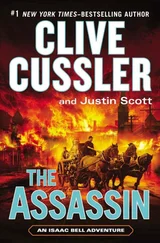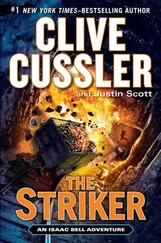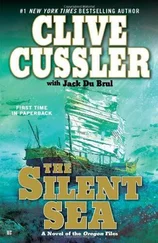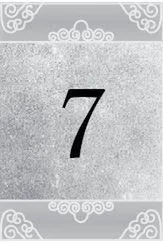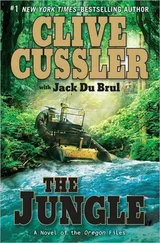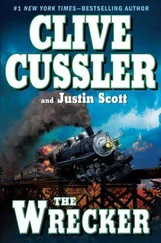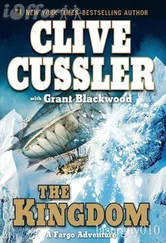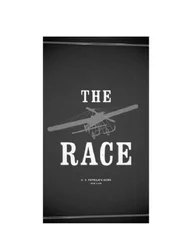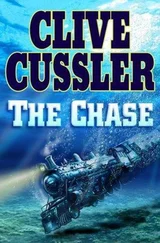He climbed up the embankment and came face-to-face with Clyde Lynds.
“Are you O.K., Mr. Bell?”
“I told you to stay inside and lock the door.”
“They’re gone. They rode away on horses.”
“Happen to catch a look at any faces?”
“No. But… Uh…”
“But what?” Bell demanded sharply, hoping for some clue.
“One of the horses had no rider,” Lynds said, looking around fearfully at the passengers clustered beside the derailed train. “Maybe he’s still here…”
“No, Clyde. That empty saddle was reserved for you.”
* * *
“Mister, if you’ll get off that locomotive,” bellowed a redheaded giant of a railroad wreck master, “we can put this train back together.”
First light found Isaac Bell poring over the Golden State’s helper locomotive with a magnifying glass. A wreck train had finally steamed up the grade from Deming, while out of the west another had just arrived from Lordsburg. Between them, the two were preparing to hoist the Limited back on the tracks, piece by piece.
“I’ll just be a minute,” Bell called down.
“Get off my train!” roared the giant, clambering up the locomotive onto the drive wheel fender.
Bell turned with a smile and thrust out his hand. “Mike Malone. I would recognize that Irish brogue in a thunderstorm.”
“Well, I’ll be damned. Isaac Bell. Put ’er there.”
They shook hands — two tall men, one lean as a rail, the other with limbs thick as chestnut crossties.
“What are you doing here?”
“Escort job,” Bell answered cryptically. He had known Mike since they had come within inches of being blown to smithereens by dynamite ingeniously hidden under Osgood Hennessy’s Southern Pacific Railroad tracks.
“Under guise,” he added, encouraging Mike to refrain from asking what Bell’s magnifying glass had to do with an escort job — not to mention the express messenger found strangled in his car and the Rolls-Royce auto chained to a broken rail.
Malone winked. “Mum’s the word.”
Bell showed him a groove rubbed in the handrail. “What do you think made this mark?”
The wreck master ran his calloused finger over it. “Hacksaw?”
“How about a braided cable?”
Malone shrugged mighty shoulders. “Could be.”
“Wouldn’t happen to have a small cutting pliers on that wreck train I could borrow?”
“Linesman’s pliers do you?”
“Long as they’re sharp as the devil and small enough to slip up my sleeve.”
“Never seen them that small. I’ll have my toolmaker run ’em up for you. Where should I send them?”
“Los Angeles.”
* * *
Isaac Bell was sure that the intention of the attack was to kidnap Clyde Lynds, not injure him. But it had come close to succeeding, and Clyde was terrified. The bravado and smart-aleck talk had been frightened out of him. His eyes were darting everywhere, seeking solace, finding fear.
Bell had no intention of walking away from the Krieg investigation. But the detective felt honor bound to ask the young scientist whether he would rather take the safe course and sell his machine to Thomas Edison so the Germans would stop plaguing him. “You’d be free of this mess in a flash.”
Clyde asked if Bell was abandoning him.
“Absolutely not. But I am saying that the attack came close, and the next might succeed, even though the Van Dorn Agency — and I in particular — will lay our lives on the line to protect you.”
“Why? What do you care? It could be years before Van Dorn sees any money out of Talking Pictures.”
To Isaac Bell, the innocent were sacred and must always be protected. But to answer Clyde, he only laughed. “I already told you. Marion hopes that your invention will help her make ever-better moving pictures. That’s good enough for me.”
“If you say so,” Clyde said, his eyes still darting, “I guess it’s good enough for me, too.”
“Are you sure, Clyde? I can’t guarantee your safety. I can only guarantee that I will do whatever is required to keep you alive, but I can’t guarantee we will succeed. The Acrobat is no slouch.”
Clyde conjured a brave smile. “What about Van Dorn’s motto, ‘We never give up. Never!’”
“Oh, we’ll get him in the end,” Bell smiled back.
“Lot of good that will do me if he gets me first.”
“That’s why I’m asking if you’re sure.”
Clyde took a deep breath. “I’m sure.”
“Good man.”
* * *
In Berlin, Arthur Curtis wandered in and out of the Tiergarten, passing through the park’s huge Egyptian gates twice in twenty minutes. The skittish Hans Reuter had failed to show up for a meeting. Curtis had hoped that his greed, if not his hatred of his employer, had made him brave again. The nattily dressed, potbellied Van Dorn started to enter the park a third time, but gave it up when he noticed a plainclothes policeman noticing him.
Seeing his jaunty stride, no one would guess that Arthur Curtis had shifted into a state of high alert and was employing every trick he knew to determine, before he returned to his office, whether he was being followed. The contact could have turned on him. It was a remote possibility, but not impossible, that he had confessed to his employer that he was selling Krieg company secrets. He might even have gone to the police; guilty men were prone to panic, and panic made fools.
Curtis worked his way cautiously through the diplomatic quarter adjoining the park, taking his time on the handsome streets that served the mansions of the ambassadors. There were Army officers aplenty in the neighborhood. It seemed every second German was wearing a uniform. By sheer coincidence, he bumped into an acquaintance, a minor British embassy official with a taste for French brandy, who said, “You’re looking all spiffed today, Arthur, what? Did you win the lottery?”
Curtis winked, “I was just visiting a friend,” which drew a lewd grin and the expected, “Might she have a sister?”
“I’ll inquire next time,” said Curtis, and they parted on a laugh.
When he reached a commercial district, he watched for reflections in the shop windows. All seemed well until a fellow in a fine gabardine coat appeared on the sidewalk ahead, twenty minutes after Curtis had first noticed him.
The man was richly dressed for a detective or a secret policeman. But Krieg and the German Army could afford the best, couldn’t they? When he noticed a uniformed mounted police officer signal someone with a nod, Arthur Curtis hopped onto a tram, partly to think things over and partly to watch who got on next. A portly fellow in an expensive homburg boarded at the next stop, perspiring from a hard run, and Curtis knew that he was either paranoid or in trouble and had to act as if it were the latter.
On the other hand, he thought with a smile that broadcast innocence, he’d been working the private detective game for fifteen years — nearly twenty if he counted his apprenticeship with a Denver-based bullion-escort outfit ramrodded by a couple of old Indian fighters — and since arriving in Germany, he’d devoted every spare moment to learning the ins and outs of the Berlin neighborhoods. He jumped off the tram and onto another.
The street traffic changed from autos to bicyclists and horsecarts, and he hopped down in a workers’ district of five-story tenements interspersed with coal yards where homburgs and gabardine coats would stand out like sore thumbs. He walked purposefully, like a man headed home — or, considering the quality of his clothing, come to collect the rent. He continued down several streets, fingering the money clip in his pocket. He rounded a corner, flashed marks at a teenager on a bicycle, and bought the bike for double its value. Then he pedaled away at three times the speed a shadow could run, hoping no cop behind him had flashed a badge at another bike rider.
Читать дальше



